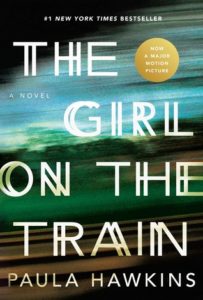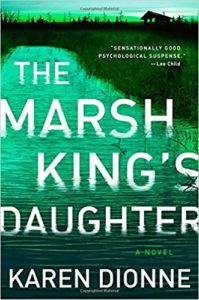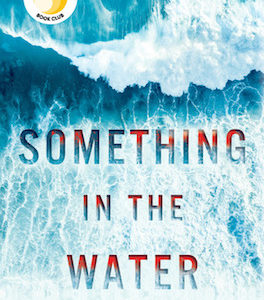I got divorced in 2013. We’d been married for twelve years and together for twenty total, which meant I was losing the person I had been with for over half my life.
I’m not going to lie. I had a lot of dark thoughts during the end of my first marriage and all throughout the long, painful year leading up to it. Like most fiction writers, I have a vivid imagination, which is a blessing or a curse depending on the situation. In this case, it was both, because while it caused me great agony to imagine my soon-to be ex-husband happy in his new relationship, it also caused me great comfort to imagine them skipping down the street holding hands, only to have them suddenly disappear into a sinkhole (and trust me, this was one of my tamer fantasies).
Starting over was hard. All I wanted was to stay exactly where I was, even if where I was totally sucked and wasn’t at all fulfilling. The first step I took as a newly single woman—moving into my own apartment, having never lived alone as an adult before—was terrifying, and I didn’t eat or sleep well for months. Starting over meant a personal transformation had to take place, beginning with an inventory of where I was, what I’ve learned, and what I wanted, all things that were vastly different than the last time I was single (which was when I was eighteen). Lessons had to be learned. Self-exploration was a must. I didn’t feel prepared for any of it. If faced with the choice to stay in a life that was “just okay” or start all over again—which is a lot of work and comes with a ton of risk—I suspect most people would choose the former.
But it makes for a boring story. Psychological thrillers—the genre I write—often deal with starting over, particularly when it comes to women. While the genre has been around a long time, readers are gravitating more than ever toward crime fiction starring women facing dark and challenging circumstances, and who must transform themselves in some way in order to survive. I think it’s because these stories are so relatable. I might enjoy the hard-hitting adventures of a Jack Reacher novel as an entertaining escape from my life, but there’s something empowering in reading stories about ordinary women like me, women with no special skills or talents and who are dealing with the everyday responsibilities of marriage, work, or motherhood, who are faced with threatening situations and still manage to come out victorious on the other side.
Crime fiction is the perfect safe space for me to explore my own growth and transformation. The characters are often similar to myself, or a close friend, or my neighbor across the street, or a woman I used to work with. It allows me to envision what would happen if I, too, dared to change something major in my life—including the consequences of making those decisions—without having to actually change anything at all.
Here are eight psychological thrillers that held up a mirror to segments of my own life, allowing me to imagine how I might tackle my problems differently:
The Wife Between Us, Greer Hendricks
There’s something both relatable and voyeuristic in watching an ex-partner build a life with a new partner, which is what Vanessa does in The Wife Between Us by Greer Hendricks. How does it feel to watch someone occupy the place in your husband’s life that you once did? Especially when she reminds you of the person you used to be before marriage changed everything? I’m not saying I can totally relate to Vanessa, whose attempts to involve herself in her ex-husband’s new relationship make her kind of stalkerish. . . but I’m not saying I totally can’t.
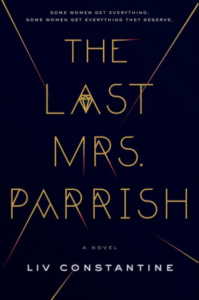
The Last Mrs. Parrish, Liv Constantine
The Last Mrs. Parrish by Liv Constantine tackles this topic, too, but from the other side. If you’ve ever been “the third party” in someone’s relationship, you might feel guilty pangs of familiarity while reading this novel about Amber, who covertly goes after her new friend Daphne’s husband by transforming herself into someone he’s convinced is better for him. However, Daphne isn’t the clueless wife Amber assumes she is, and the ending is satisfying in all the ways these real-life situations never are.
The Girl on the Train, Paula Hawkins
I came out of my first marriage just fine (eventually), but not everybody transforms into a better version of themselves after a divorce, which is the sad case in Paula Hawkins’s The Girl on the Train. Rachel is an unemployed alcoholic who sits on the train every day pretending to go to work. The train passes right by her old house, which is now occupied by her ex-husband and his new wife. This fixation with old partners’ new partners seem to be a theme here, but there’s a reason for this: haven’t we all checked out an old boyfriend’s new girlfriend on Facebook? No? Just me? Okay, moving on . . .
The Marsh King’s Daughter, Karen Dionne
Starting over doesn’t always involve romantic relationships. It can be about parents and children. In Karen Dionne’s The Marsh King’s Daughter, Helena is the daughter of a serial killer and the teenage girl he kidnapped and held captive for years. Helena is now an adult with a family of her own, and her father has just escaped from prison. The story dives into the complicated feelings she has for her father – whom she remembers loving deeply as a child – and all the tangled emotions that stem from this.

Never Let You Go, Chevy Stevens
Chevy Stevens’s Never Let You Go explores something similar with fathers and daughters. Lindsey has completely rebuilt her life as a single mom, but her abusive ex-husband has been released from prison and is attempting to build a relationship with their teenage daughter without her finding out. Sophie is understandably curious about her dad, and it’s hard for her to reconcile the seemingly kind, protective man she’s getting to know with the man who terrifies her mother. Told in alternating points of view, we get a close look at how both women are forced to adapt to their precarious situations.
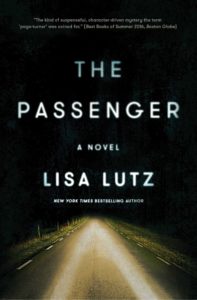
The Passenger, Lisa Lutz
Often transformation is necessary to escape the past. In Lisa Lutz’s The Passenger, Tanya leaves her dead husband at the bottom of the stairs and blows town, creating a whole new identity for herself in an attempt to get as far away from her old life as possible. Turns out she’s done this before. This makes for an entertaining read, because who hasn’t imagined walking away from their current life into a completely new one, right down to the name change? Oh, wait, that’s just me again?
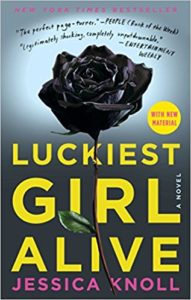
Luckiest Girl Alive, Jessica Knoll
Trauma can spur transformation in many ways. In Jessica Knoll’s Luckiest Girl Alive, the shallow twenty-something Ani believes that if she can build a life that looks enviable from the outside—designer clothes, glamorous job, rich fiancé—it will somehow ease the pain of the horrific assault she suffered when she was only fourteen, proving that not everyone who overcomes something terrible is likeable. Just like in real life.
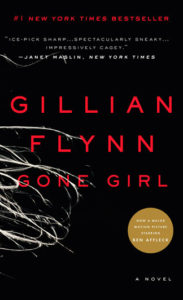
Gone Girl, Gillian Flynn
Gillian Flynn’s Gone Girl is another example of this. Amy is married to Nick, and their marriage is filled with financial frustration, petty grievances, disappointment, and a desire (on Amy’s part) for their life to look absolutely perfect, never mind that it totally isn’t. When she disappears, leaving Nick the prime suspect in her possible murder, her diary is discovered. It reveals the truth about her marriage, or at least the truth Amy wants people to believe, proving yet again that sometimes how something looks is almost as a good as how it actually might be. After all, don’t we all curate our pictures on Facebook and Instagram to reflect the life we want people to think we have?
Or is that just me?



